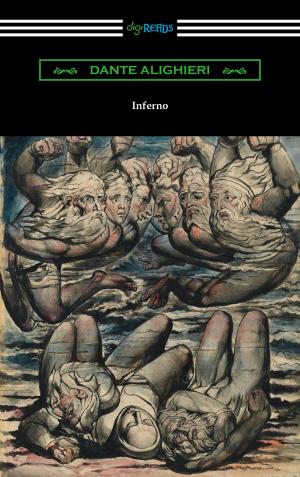| Author: | Ovid | ISBN: | 9781420951028 |
| Publisher: | Neeland Media LLC | Publication: | December 15, 2009 |
| Imprint: | Digireads.com Publishing | Language: | English |
| Author: | Ovid |
| ISBN: | 9781420951028 |
| Publisher: | Neeland Media LLC |
| Publication: | December 15, 2009 |
| Imprint: | Digireads.com Publishing |
| Language: | English |
"The Fasti", a work structured on the Roman calendar, is believed to have been left incomplete when Ovid was exiled to Tomis by the emperor Augustus in 8 A.D. It is a series of elegiac couplets which present the first-hand accounts of vates, or "poet-prophets" with Roman deities regarding the origin of various Roman holidays and associated customs. The first six months of the year are all that is included in the work and it is unclear whether this was the intention of Ovid, whether the work is incomplete, or if the books on the last six months are simply lost. "The Tristia" or "Sorrows" is a collection of letters written in elegiac couplets during Ovid's exile from Rome. Despite being five books in length, the work provides no clues as to the reason for Ovid's exile. "The Pontiac Epistles" or "Letters from the Black Sea" is a collection also written in exile in which Ovid describes the rigors of his exile and pleads for leniency. "Ibis" is a collection of mythic stories in which Ovid uses to curse and attack an enemy who is harming him in exile. This collection brings together the works that Ovid wrote just prior to and during his exile and give great insight into the author's life during this period. These works are presented here in an English prose translation by Henry T. Riley.
"The Fasti", a work structured on the Roman calendar, is believed to have been left incomplete when Ovid was exiled to Tomis by the emperor Augustus in 8 A.D. It is a series of elegiac couplets which present the first-hand accounts of vates, or "poet-prophets" with Roman deities regarding the origin of various Roman holidays and associated customs. The first six months of the year are all that is included in the work and it is unclear whether this was the intention of Ovid, whether the work is incomplete, or if the books on the last six months are simply lost. "The Tristia" or "Sorrows" is a collection of letters written in elegiac couplets during Ovid's exile from Rome. Despite being five books in length, the work provides no clues as to the reason for Ovid's exile. "The Pontiac Epistles" or "Letters from the Black Sea" is a collection also written in exile in which Ovid describes the rigors of his exile and pleads for leniency. "Ibis" is a collection of mythic stories in which Ovid uses to curse and attack an enemy who is harming him in exile. This collection brings together the works that Ovid wrote just prior to and during his exile and give great insight into the author's life during this period. These works are presented here in an English prose translation by Henry T. Riley.















